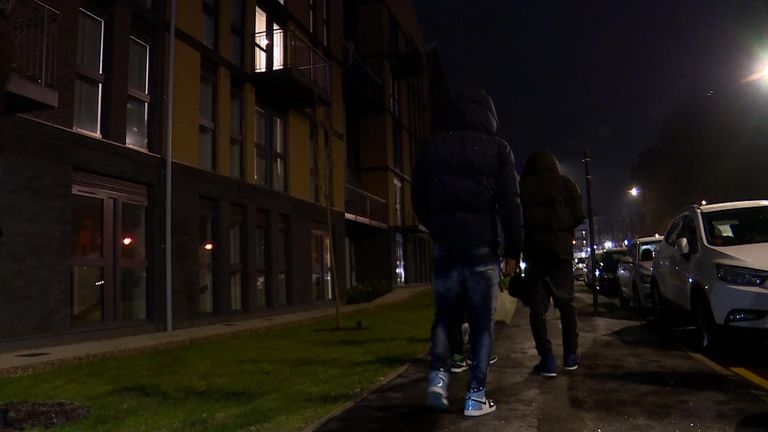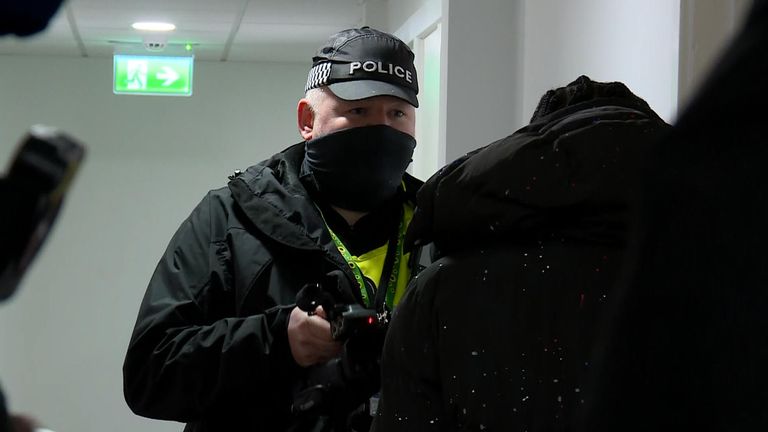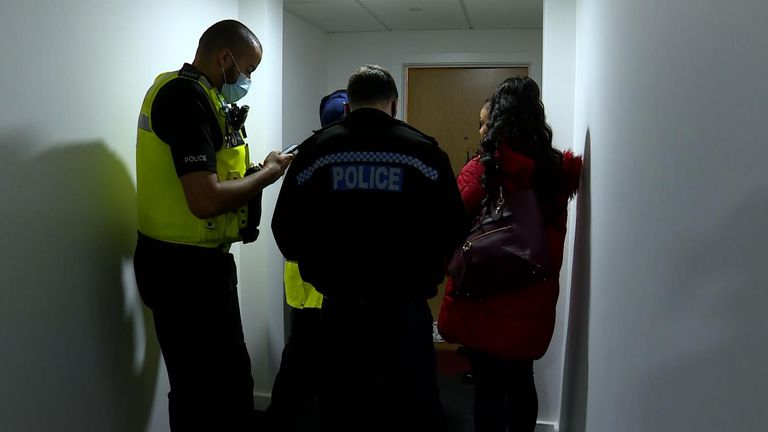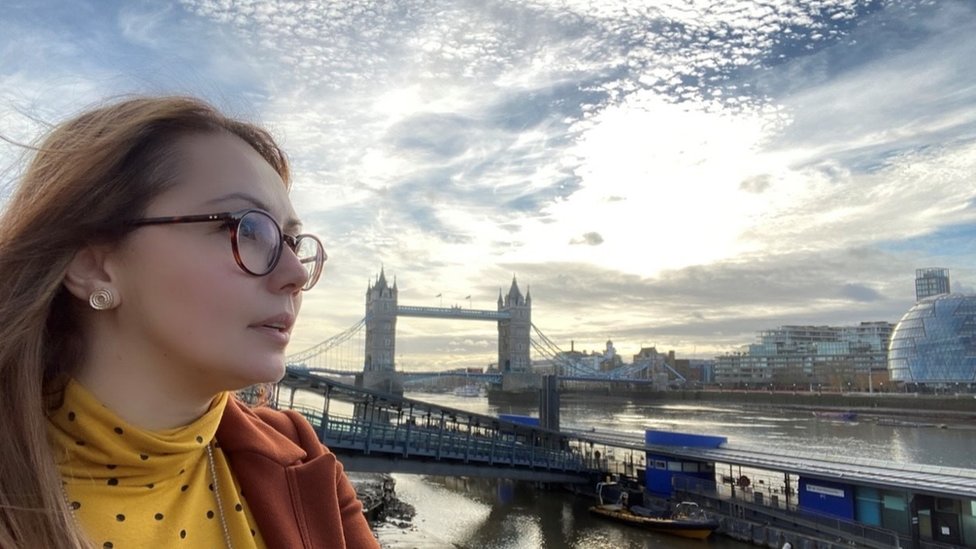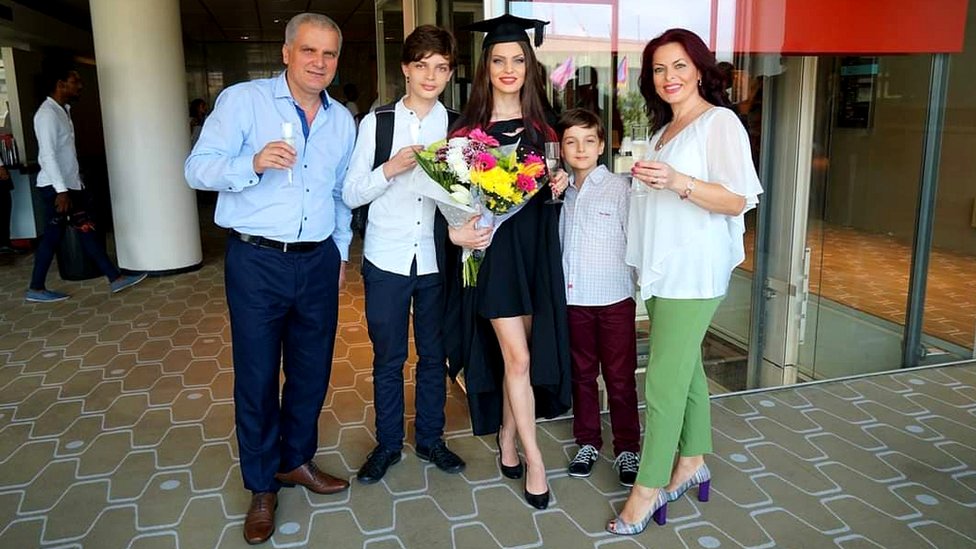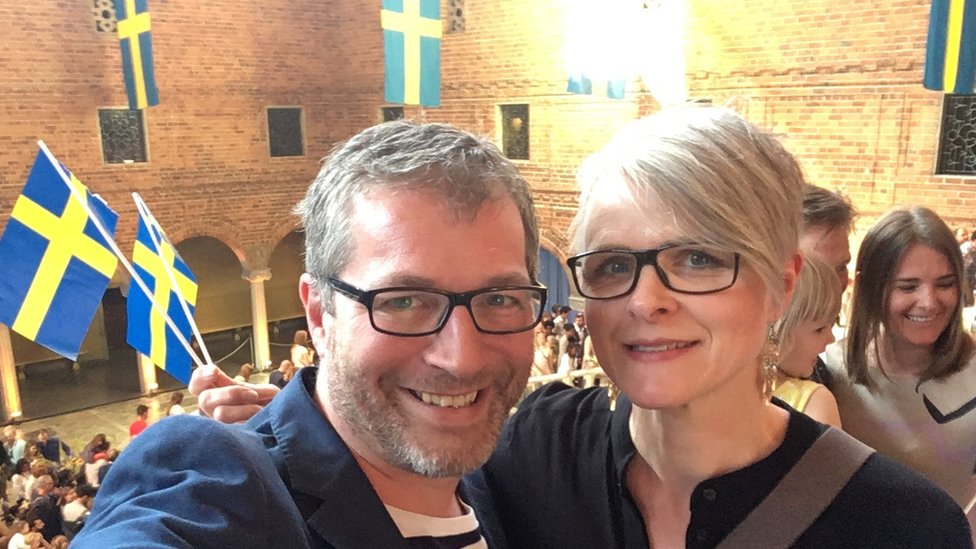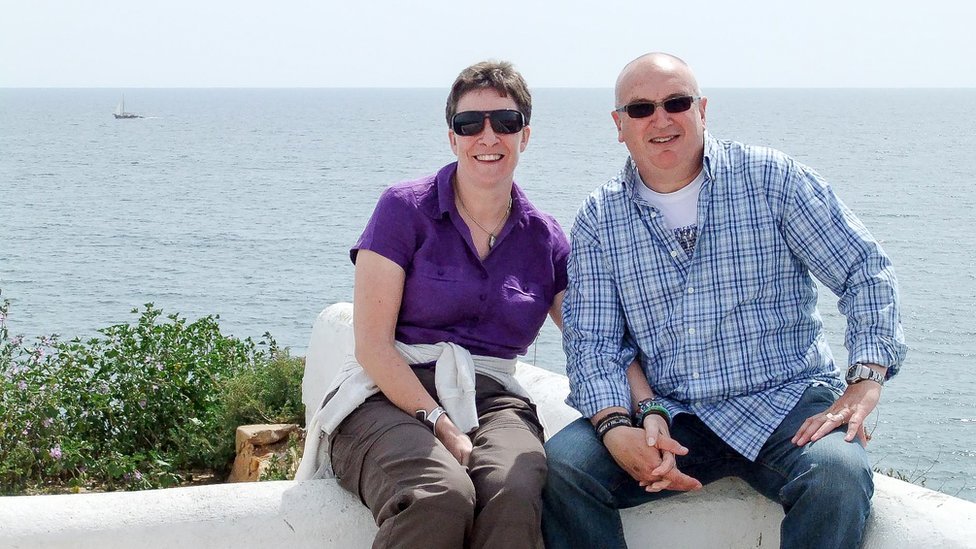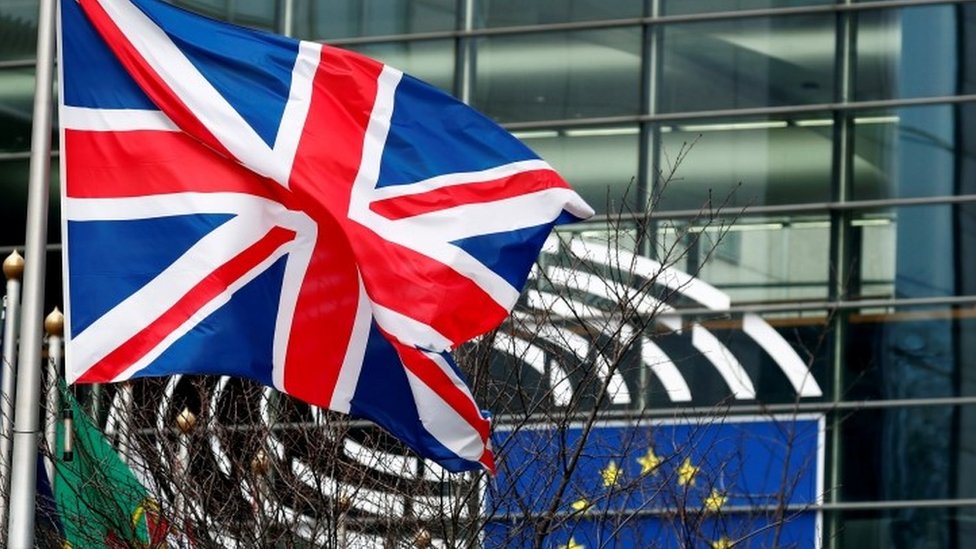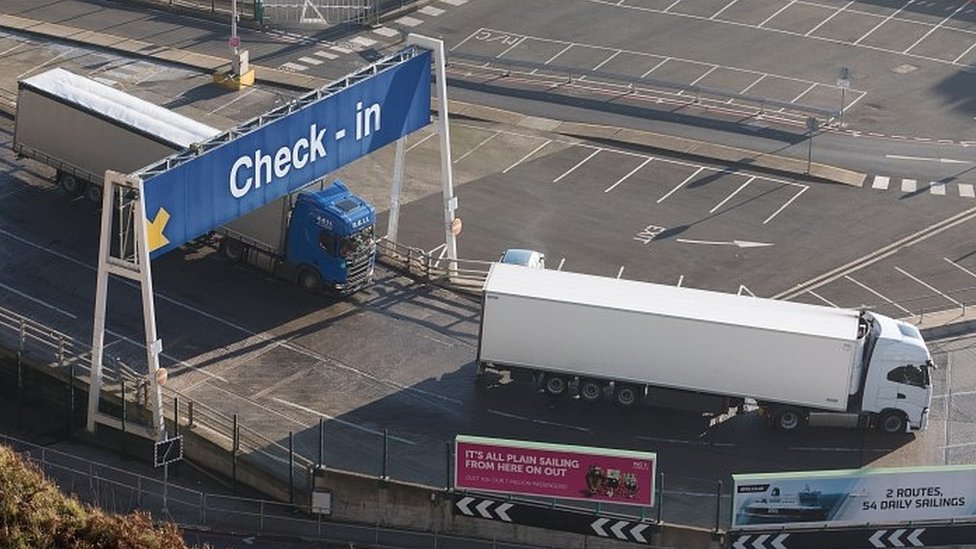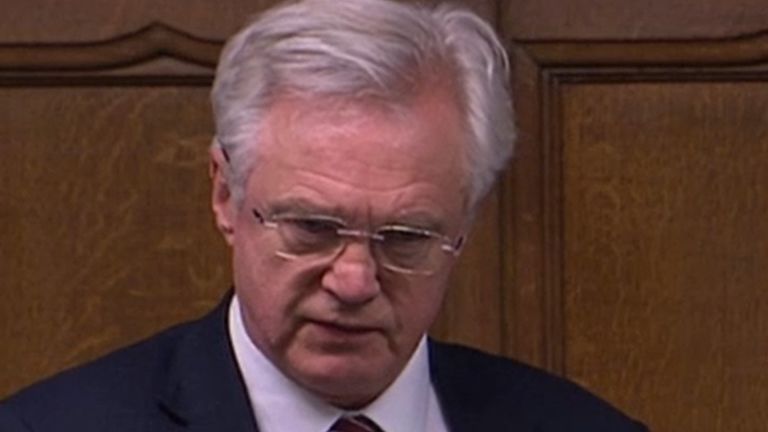New Year's Eve in Birmingham, and the impact of Tier 4 COVID restrictions is all too apparent.
Occasional fireworks, and a rainbow of lasers, light up the sky, and optimistic taxi drivers line up on ranks in the city centre.
But the bars are closed, the restaurants have their shutters down, and the nightclubs are quiet. Only the takeaways are open, their customers walking home with familiar white plastic bags through the eerily quiet streets.
On any other New Year's Eve, these same streets would be thronging with people. The city centre would entertain tens of thousands of party-goers. The bars and restaurants taking hundreds of thousands of pounds on one of their busiest nights of the year.
And bubbles would only be mentioned when talking about champagne.
But not in 2020.
Tier 4 means "stay at home". No one can meet with any other people indoors, unless they live with them, or are part of a support bubble.
That means any celebrations have to be small, and private.
If anyone breaks the rules, they can be fined, and West Midlands Police, like forces up and down the country, is tasked with enforcing the restrictions.
Inspector Richard Cox is Bronze Commander for the evening, co-ordinating around a hundred officers. Many of them are part of the Operational Support Unit, or OSU, trained in dealing with public order incidents, home searches and football matches.
"Our main aim is to utilise the four E's which have been devised in response to the pandemic," he says.
"Firstly to engage with the public, then to explain the rules, to educate people about how they should behave, and only finally to enforce the legislation with fines."
We're on patrol with PC Dave Grossett.
Closing down parties might not have been what he signed up for, but he knows it's an important job, as the country continues to record higher and higher rates of infection.
"Nobody joins the police to keep families apart, we'd rather be bringing people together," he says.
"But these are very difficult times, and we know that the rules aren't there to victimise people, they're there to protect the most vulnerable."
Within minutes of leaving the police station, the radio is chattering with information about a number of locations where the restrictions are potentially being breached.
Every incident, COVID-related or not, is given a "P" number from one to nine to indicate the severity of the offence. P1 is the highest level, and requires attendance within 15 minutes.
The first call we head for is classified as P3, with information to the police suggesting a gathering of over 30 people in the garden of a property in Tividale, near Dudley.
We arrive at the same time as another team of four officers, only to discover the party had already been dispersed by Community Support Officers, with no action taken.
The digital running log is constantly being updated with incidents: a pub in West Bromwich where lights and music have been reported; 12 people celebrating in the front garden and on the road outside a house in Solihull; a house party in Birmingham city centre that's been reported by several neighbours; a group of men having a barbecue inside an industrial unit.
By 10pm there have been more than 100 recorded. Nearly all are small house parties which are quickly dispersed. Some are legitimate gatherings. Some have been falsely or maliciously reported. But all still have to be attended and checked.
We head to the city centre to follow up reports that a group of 40 to 50 young people have gathered.
They soon disperse, and a group of stragglers, some wearing sequinned party dresses ill-suited for the sub-zero temperatures, are given face masks by police before they make use of one the taxis whose driver's optimism has paid off.
It's not clear whether they were heading to, or from, a party. The next call suggests it was the former.
At an apartment block nearby, we arrive to find a dozen or more officers attending a party of at least 35 young people.
Names, ages and addresses are taken, some given more readily than others, then the youths are given dispersal notices and sent home. Their ages will determine whether or not they receive fixed penalty notices in the coming days.
As we continue to drive around the residential streets, it seems that the vast majority of people are sticking to the rules.
But almost 300 reported incidents by midnight suggest that not everyone was prepared to observe the restrictions.
Some don't believe in compliance, others don't believe in COVID. Some simply believe they'll get away with it.
All of them though have chosen to behave in a way that according to the health professionals, could ultimately cost lives.
https://news.google.com/__i/rss/rd/articles/CBMieGh0dHBzOi8vbmV3cy5za3kuY29tL3N0b3J5L2NvdmlkLTE5LW1hc3MtZ2F0aGVyaW5ncy1hbmQtbmV3LXllYXJzLWV2ZS1wYXJ0aWVzLWJyb2tlbi11cC1ieS1wb2xpY2UtaW4tYmlybWluZ2hhbS0xMjE3NjU2OdIBfGh0dHBzOi8vbmV3cy5za3kuY29tL3N0b3J5L2FtcC9jb3ZpZC0xOS1tYXNzLWdhdGhlcmluZ3MtYW5kLW5ldy15ZWFycy1ldmUtcGFydGllcy1icm9rZW4tdXAtYnktcG9saWNlLWluLWJpcm1pbmdoYW0tMTIxNzY1Njk?oc=5
2021-01-01 02:54:13Z
52781278818378

